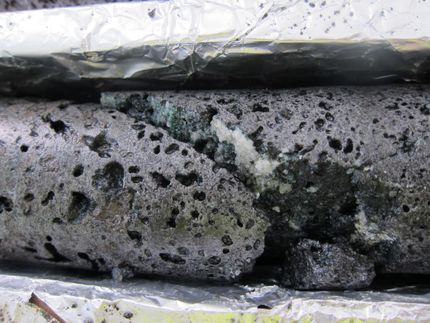Global warming: New research puts the blame on economic growth
Advertisement
It’s a message no one wants to hear. To slow down global warming, we’ll either have to put the brakes on economic growth or transform the way the world’s economies work. That’s the implication of a University of Michigan study examining the most likely causes of climate change.
The study, conducted by José Tapia Granados and Edward Ionides of U-M and Óscar Carpintero of the University of Valladolid, Spain, was published in Environmental Science and Policy. It is the first analysis to use measurable levels of atmospheric carbon dioxide to assess fluctuations in the gas, rather than estimates of CO₂ emissions, which are less accurate.
“If ‘business as usual’ conditions continue, economic contractions the size of the Great Recession or even bigger will be needed to reduce atmospheric levels of CO₂,” says Tapia Granados, who is a researcher at the U-M Institute for Social Research (ISR).
For the study, the researchers assessed the impact of four factors on short-run, year-to-year changes in atmospheric concentrations of CO₂, widely considered the most important greenhouse gas. Those factors included two natural phenomena believed to affect CO₂ levels – volcanic eruptions and the El Niño Southern oscillation – and also world population and the world economy, as measured by worldwide gross domestic product.
Tapia Granados and colleagues found no observable relation between short-term growth of world population and CO₂ concentrations, and they show that incidents of volcanic activity coincide with global recessions, which may confound any slight volcanic effects on CO₂.
With El Niño outside of human control, economic activity is the sole modifiable factor. In years of above-trend world GDP, from 1958 to 2010, the researchers found greater increases in CO₂ concentrations. For each $10 trillion in US dollars that the world GDP deviates from trend, CO₂ levels deviate from trend about half a part per million (ppm), they found. Preindustrial concentrations are estimated to be between 200 and 300 ppm.
To break the economic habits contributing to a rise in atmospheric CO₂ levels and global warming, Tapia Granados points out, societies around the world would need to make enormous changes.
“Since the mid 1970s, scientists like James Hansen have been warning us about the effects global warming will have on the earth,” says Tapia Granados. “One solution that has promise is a carbon tax levied on any activity producing CO₂ in order to create incentives to reduce emissions. The money would be returned to individuals so the tax would not burden the population at large.
“What our study makes clear is that climate change will soon have a serious impact on the world, and the time is growing short to take corrective action.”


































































